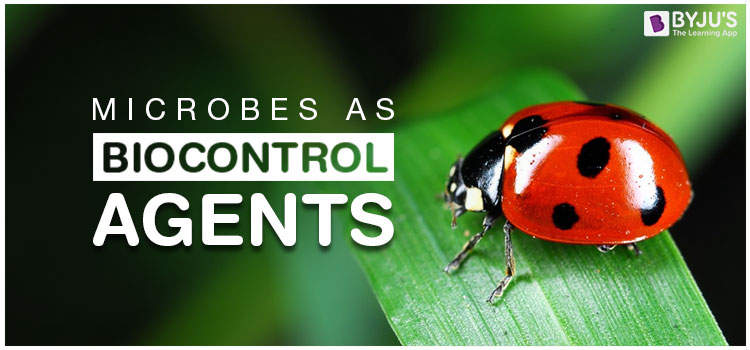Microbes or microorganisms are tiny single-celled creatures. They are small enough not to be seen by our naked eyes. Some microbes are useful in human welfare while others are harmful and toxic and make us ill. Let’s take a glance at the role of microbes as biocontrol agents.
What is Biocontrol?
The natural method of eliminating and controlling the insects, pests and other disease-causing agents using their natural, biological enemies is called biocontrol or biological control. The agents which are employed for this are called biocontrol agents. Microbes are one of them.
Biocontrol works on the principle of predation and parasitism. It is much reliable and healthier than killing insects and pest using insecticides and pesticides. Thus, this prevents soil pollution and health issues related to insecticide poisoning, etc.
Biocontrol Agents
Biocontrol agents are an integral part of organic farming. In organic farming, farmers believe in mutualism. In other words, organic farmers keep a balance of useful and harmful agents within the system. The chemicals used for eradicating pest and parasite might not be always successful and also harm useful agents too. Instead, farmers used biocontrol agents which predate the insects and pests that cause diseases to crops. This approach of pest management needs vivid knowledge about the life cycle and feeding habits of different life forms.
Also Read: Antimicrobial Resistance

Microbial Biocontrol Agents
Ladybird and dragonflies are two common insects which are employed to eradicate aphids and mosquitoes respectively. Other than insects, microbes are also used as biocontrol agents. These microbes include bacteria, fungi, viruses, and protozoans. Microbes act as biocontrol agents in three ways, either they cause diseases in the pests or compete with them or kill them.
Biotechnology has extended widely and has developed many biocontrol agents. For example, Bacillus thuringiensis which is often referred to as Bt is a microbial biocontrol agent. Spraying the solution of Bt made of spores on plants will kill the butterfly caterpillars. The spores that are ingested release toxins in the guts of the larvae and kill them.
Biotechnology has developed disease-resistant and pest-resistant plants by injecting the toxic genes of B. thuringiensis into plants. For e.g. Bt cotton. Fungus-like Trichoderma and baculoviruses of genus Nucleopolyhedrovirus are some other microbial biocontrol agents. These agents are specific in nature; this along with the cost limits their use.
Also Read: Biocontrol Agents
For more details on microbial biocontrol agents, keep visiting BYJU’S website or download BYJU’S app for further reference. The examples of microbes as biocontrol agents for Class 12 are also mentioned here.

Good and interesting